Spirulina’s the buzzword in health circles, making waves with its rich nutrient profile.
But hey, it’s not for everyone – the taste can be a deal-breaker. Hunting for alternatives?
We’ve got your back. Sometimes, the best flavor hacks are hiding in plain sight, ready to amp up your dishes without making your wallet cry.
Our kitchens have turned into mini-labs, experimenting to find the perfect swaps.
Ready to give your meals a nutritional boost without spirulina?
Stick with us; we’re about to share some gems that even the fussiest eaters will love.
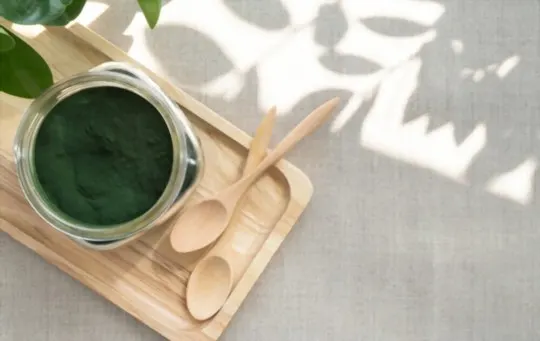
The 5 BEST Substitutes for Spirulina
If you’ve been looking for a substitute for spirulina, your search ends here.
We have carefully curated the five best alternatives to this exclusive superfood.
Whether you’re looking for something that has similar health benefits or flavor profiles, we’ve got you covered with our list of the top five substitutes for spirulina.
Now, let’s dive into each substitute in more detail:
1 – Chlorella
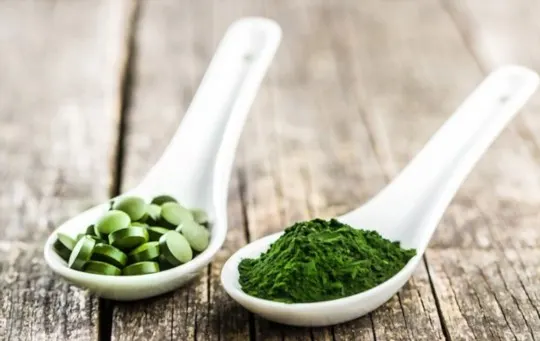
Chlorella is a captivating alga that is well-known for its tremendous nutritional benefits.
This mitochondria-rich microalga boasts an abundance of minerals, vitamins, and phytochemicals which makes it an attractive supplement option.
It has a soft yet crunchy texture with a mild taste that makes it easy to incorporate into drinks and smoothies.
If you are looking to substitute Spirulina powder, Chlorella provides comparable health benefits with additional protein and healthy fats without disturbing the flavor profile too much.
2 – Moringa
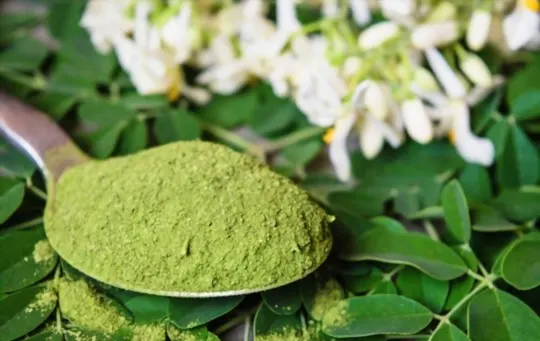
Moringa is a superfood that has drawn a lot of attention from people all around the world.
It is highly nutritious, eaten both fresh and as a dried powder, and is often referred to as ‘the miracle tree’ because of its many benefits.
The leaves have an earthy taste, quite similar to spinach but milder in flavor and texture.
Moringa powder can be used in smoothies or added to soups and stews to give them a nutritional boost.
It’s also great for substituting spirulina in dishes as it imparts the same green color without an overly fishy flavor.
With its long list of health benefits and versatility in recipes, it’s no wonder why Moringa is commonly referred to as the ‘miracle tree’.
3 – Barley Grass Powder
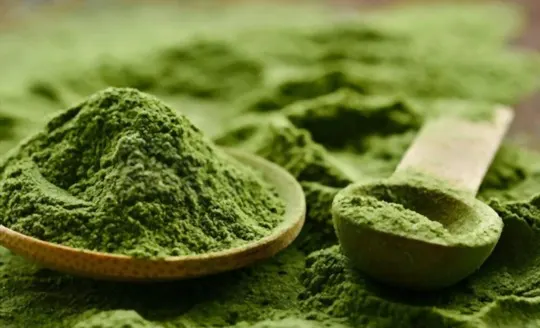
For those looking to nourish their bodies with the robust nutrition provided by green superfoods, barley grass powder is an interesting and unique option.
This powder derived from the young leaf of the barley plant contains high quantities of vitamins A, C, E, and the entire B complex family, but also various other minerals, including magnesium, zinc, and calcium.
On top of all this nutritional content, barley grass powder has a notable burstiness and subtle fruity taste that helps set it apart as a truly special ingredient.
Furthermore, when used in recipes as a substitute for spirulina, it offers similar light-green coloring capabilities while still giving its own uniquely delicious flavor.
It has never been easier to integrate the power of nutrient-dense food into any favorite recipe.
4 – Wheatgrass
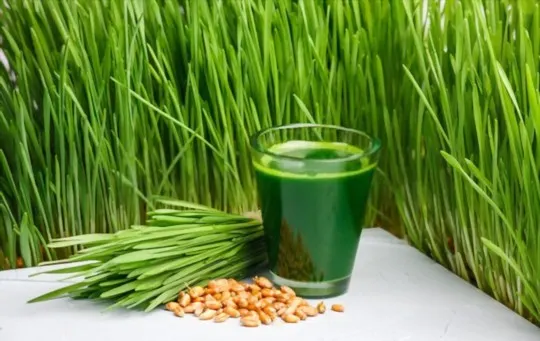
Wheatgrass is an incredibly versatile and nutritious superfood, packed full of fiber, chlorophyll, and tons of vitamins and minerals.
Because wheatgrass is grown from the wheat berry, it has a slightly grassy taste that can be a bit sour, although some people find it surprisingly mild.
The texture is something like eating fresh grass off your backyard lawn – chewy but not crunchy.
If you’re looking for something similar to Spirulina, Wheatgrass is definitely a good substitute due to its detoxifying effects.
It’s also much easier to get hold of and more cost-effective too.
All in all, wheatgrass is considered one of nature’s greatest healers, offering numerous health benefits while still tasting pretty good.
5 – Hemp Seeds
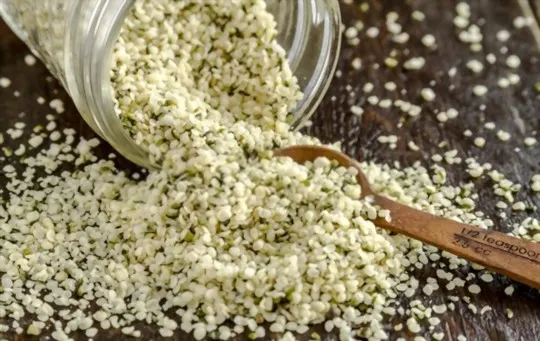
Hemp seeds are a great resource for many dietary needs.
Not only are they packed with protein, essential fatty acids, minerals, and antioxidants, but also they’ve been cultivated for thousands of years by civilizations all across the world.
These tiny, nutty-flavored seeds have a crunchy texture, similar to sesame seeds, and make a great addition to yogurt bowls or salads.
Even better, hemp seeds can easily be substituted for spirulina in meals due to their nutritional composition, containing ten different amino acids and high doses of vitamins and minerals such as calcium, iron, and potassium.
As hemp progress continues to be made around the globe, it shows itself to be an invaluable addition where perplexity once filled our minds.

Leave a comment